Cognitive Development Extra Challenge Geometry Worksheets for Ages 3-7
7 filtered results
-
From - To
Explore our "Cognitive Development Extra Challenge Geometry Worksheets for Ages 3-7" designed to enhance young learners' spatial awareness and problem-solving skills. These engaging worksheets provide a fun and interactive way for children to explore shapes, patterns, and spatial relationships, fostering essential cognitive growth. Perfect for encouraging critical thinking, these activities are tailored to various learning abilities, allowing children to navigate through exciting challenges while building a strong foundation in geometry. Ideal for both classroom and home use, our worksheets aim to inspire creativity and confidence in young minds as they embark on their mathematical journey.
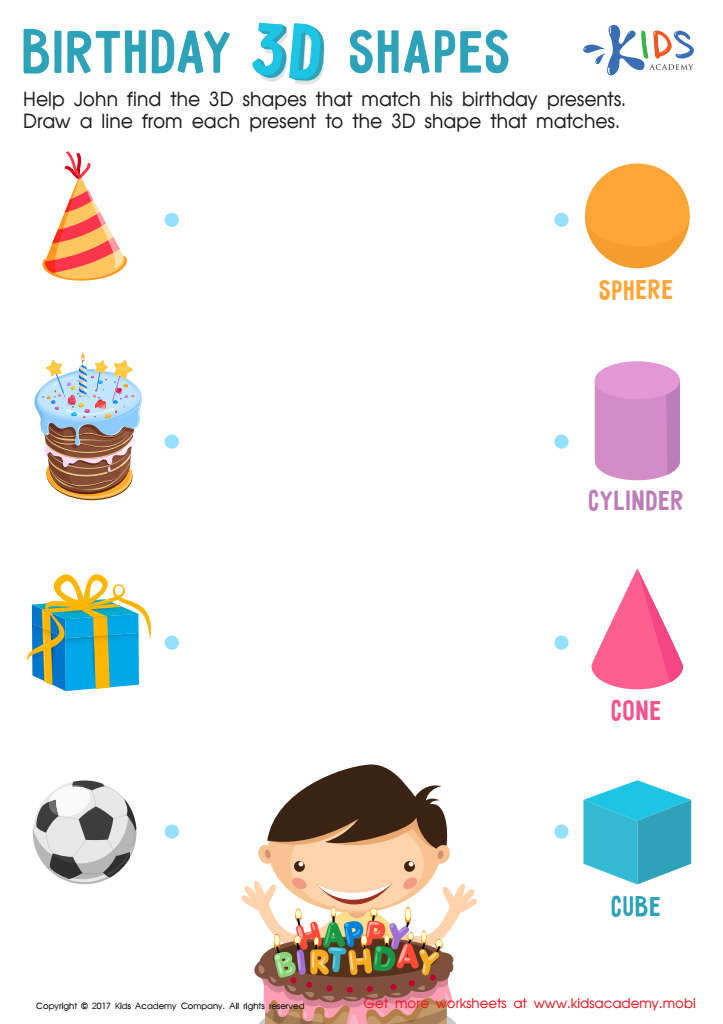

Birthday 3D Shapes Worksheet
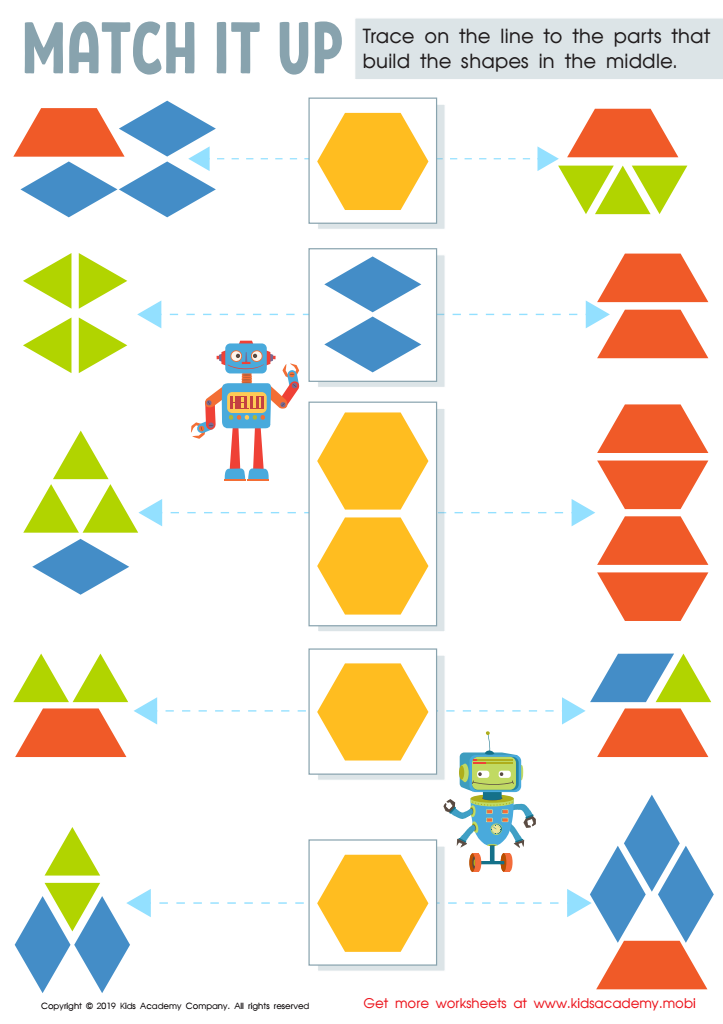

Match It up Worksheet
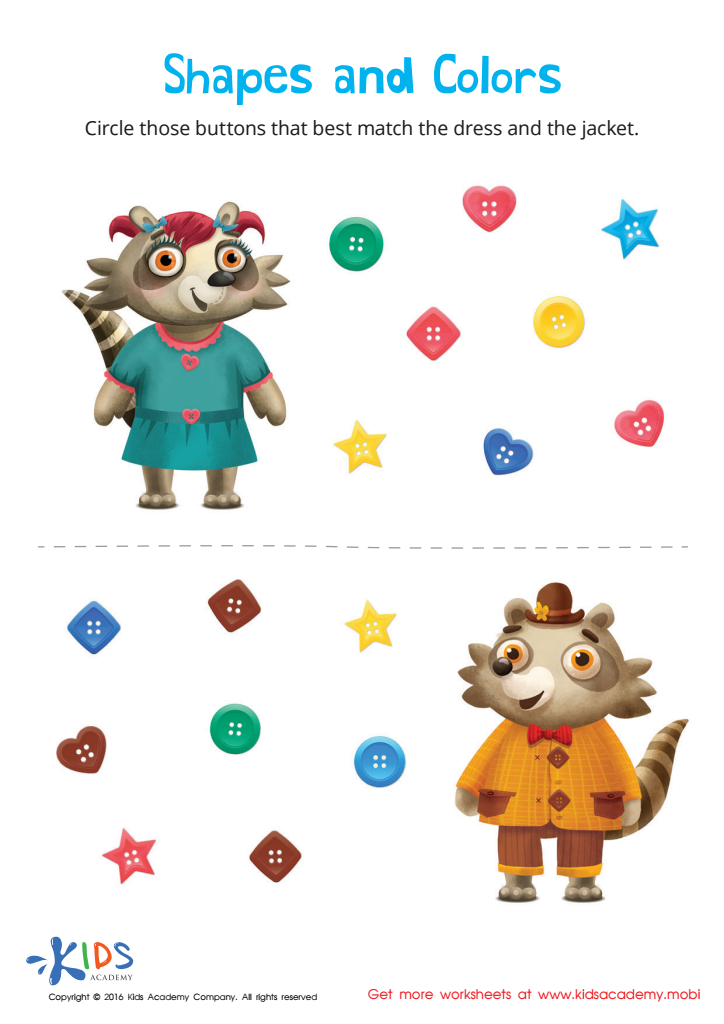

Matching: Shapes and Colors Worksheet
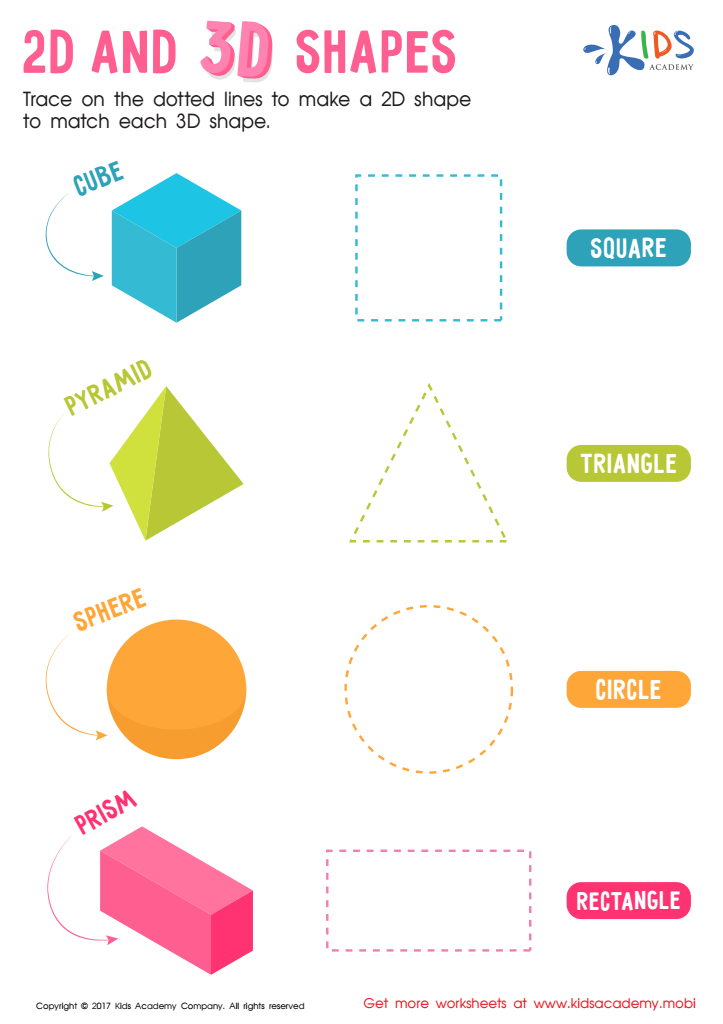

2D and 3D Shapes Worksheet
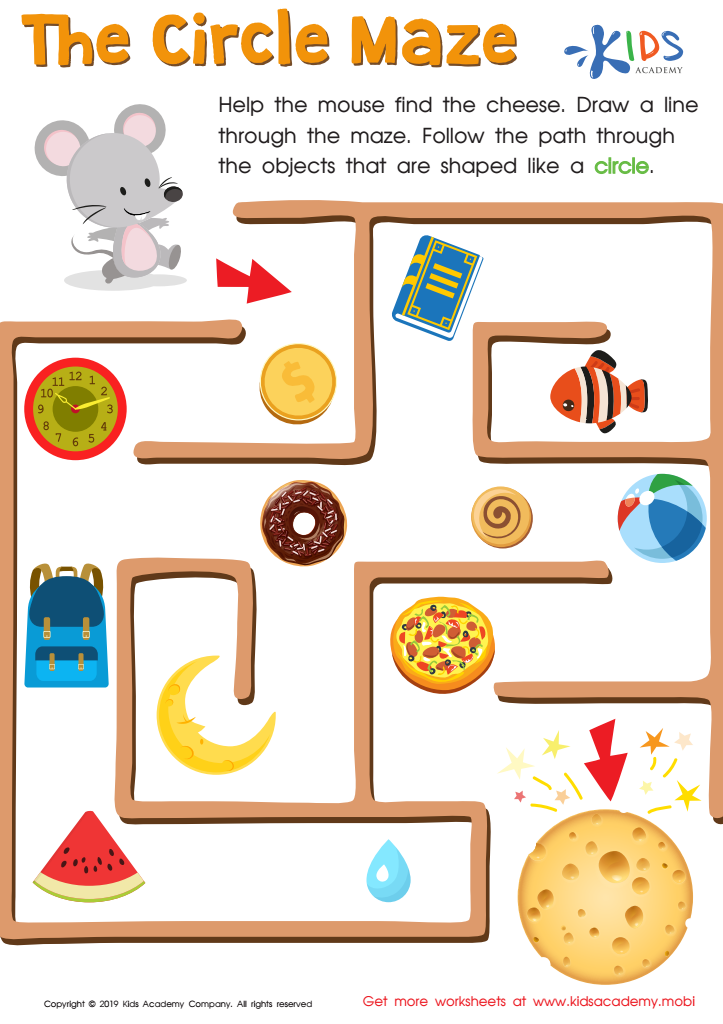

The Circle Maze Worksheet
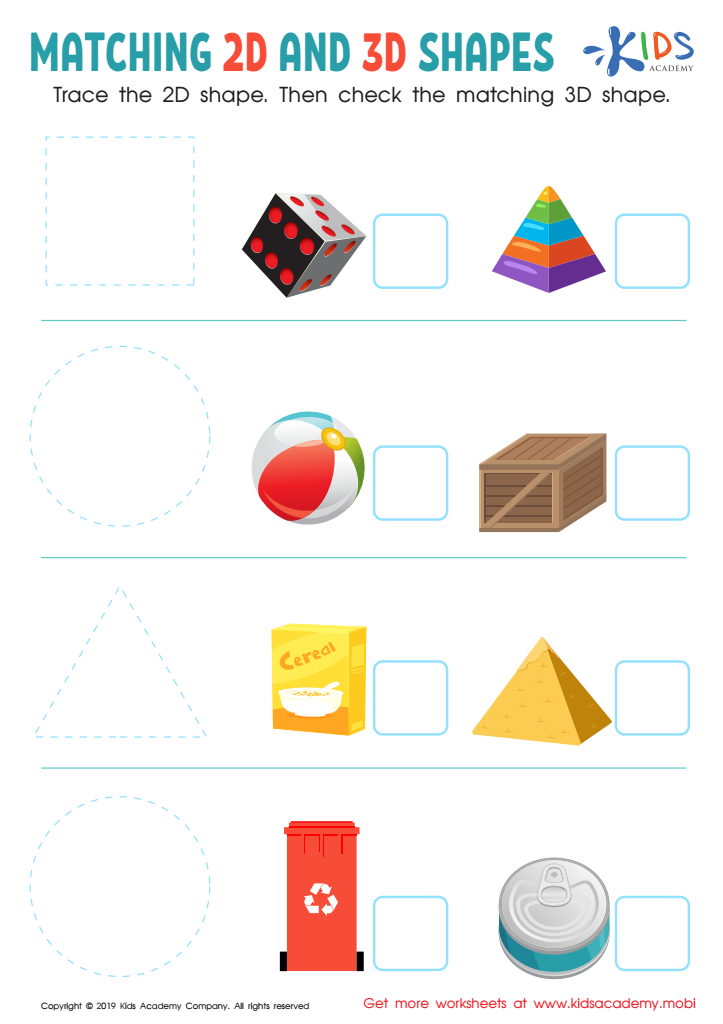

Matching 2D and 3D Shapes Worksheet
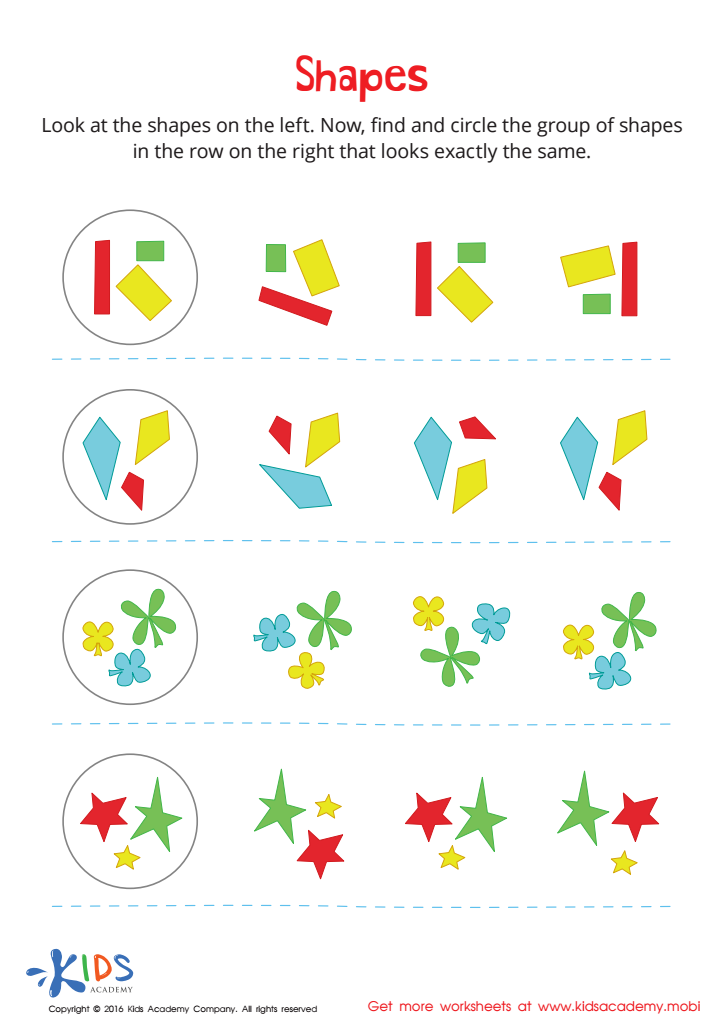

Shapes Worksheet
Cognitive development during early childhood is crucial for laying the foundation for future learning and problem-solving skills. Programs like "Cognitive Development Extra Challenge Geometry" are beneficial for children aged 3 to 7 because they engage young learners in exploring shapes, spatial relationships, and basic geometric principles through fun and interactive activities.
Parents and teachers should care about this program as it enhances critical thinking and analytical skills, which are essential for academic success. Early exposure to geometry helps children recognize patterns, make comparisons, and understand the properties of objects, fostering their mathematical intuition.
Moreover, these activities promote hands-on learning, encouraging children to manipulate objects, which aids in better cognitive retention. By integrating geometry with play, children experience less anxiety regarding math and develop a positive attitude towards problem-solving. This approach not only enhances mathematical understanding but also boosts creativity and spatial reasoning, valuable skills in everyday life.
Furthermore, as children grow, these foundational geometry skills contribute to their ability to tackle more complex math concepts, ensuring they are prepared for advanced learning. In sum, supporting early cognitive development through challenges like geometry equips young learners with the tools they need for lifelong success.
 Assign to My Students
Assign to My Students






























